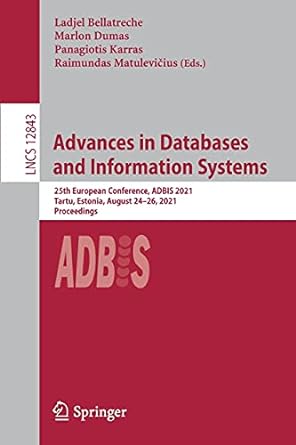Answered step by step
Verified Expert Solution
Question
1 Approved Answer
Previously, we discussed schedulers in terms of turnaround and response times. This time we want to look a scheduler that dictates that each job gets
Previously, we discussed schedulers in terms of turnaround and response times. This time we want to look a scheduler that dictates that each job gets a specified percentage of CPU time. This is why it is called a fairshare scheduler.
The operating system repeatedly holds a lottery to determine which job is run next. Processes that should be run with greater frequency should have a better chance of winning the lottery.
Instead of optimizing for turnaround or response time, a scheduler can seek to guarantee that each job gets a certain percentage of CPU time.
The idea is to hold a lottery every now and then to choose which process should run next. Processes that should run more often should have greater chances to win.
How does the lottery system work?
Step by Step Solution
There are 3 Steps involved in it
Step: 1

Get Instant Access to Expert-Tailored Solutions
See step-by-step solutions with expert insights and AI powered tools for academic success
Step: 2

Step: 3

Ace Your Homework with AI
Get the answers you need in no time with our AI-driven, step-by-step assistance
Get Started


